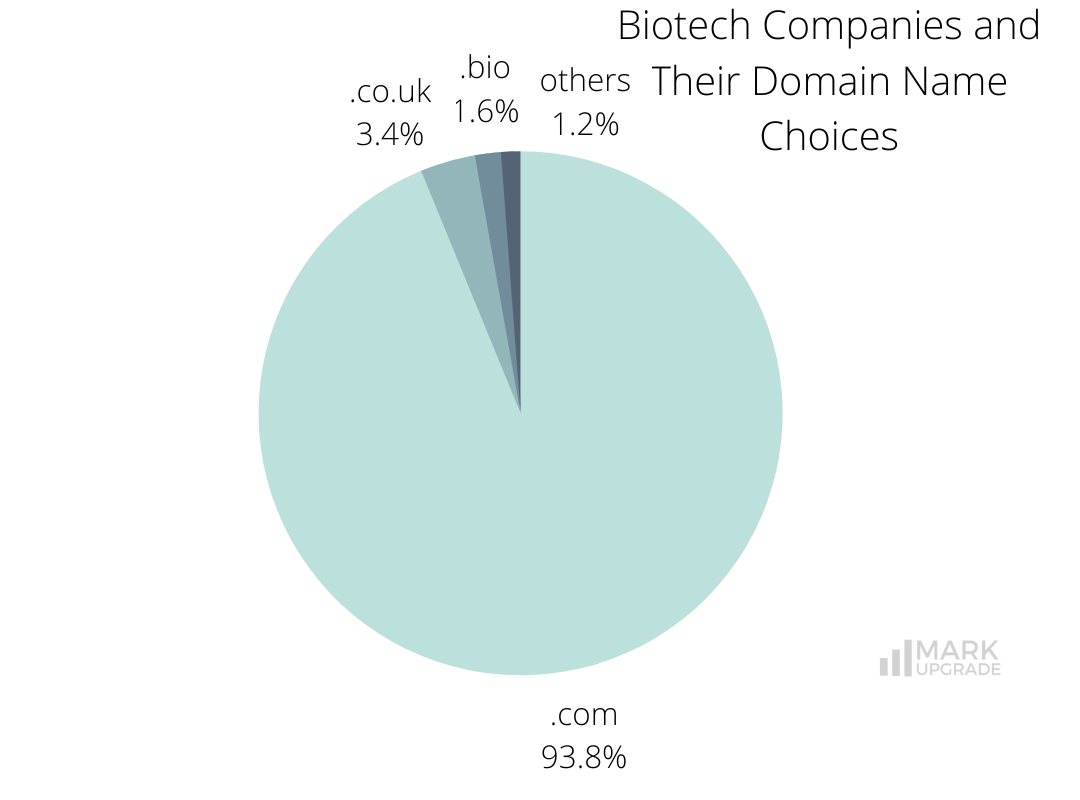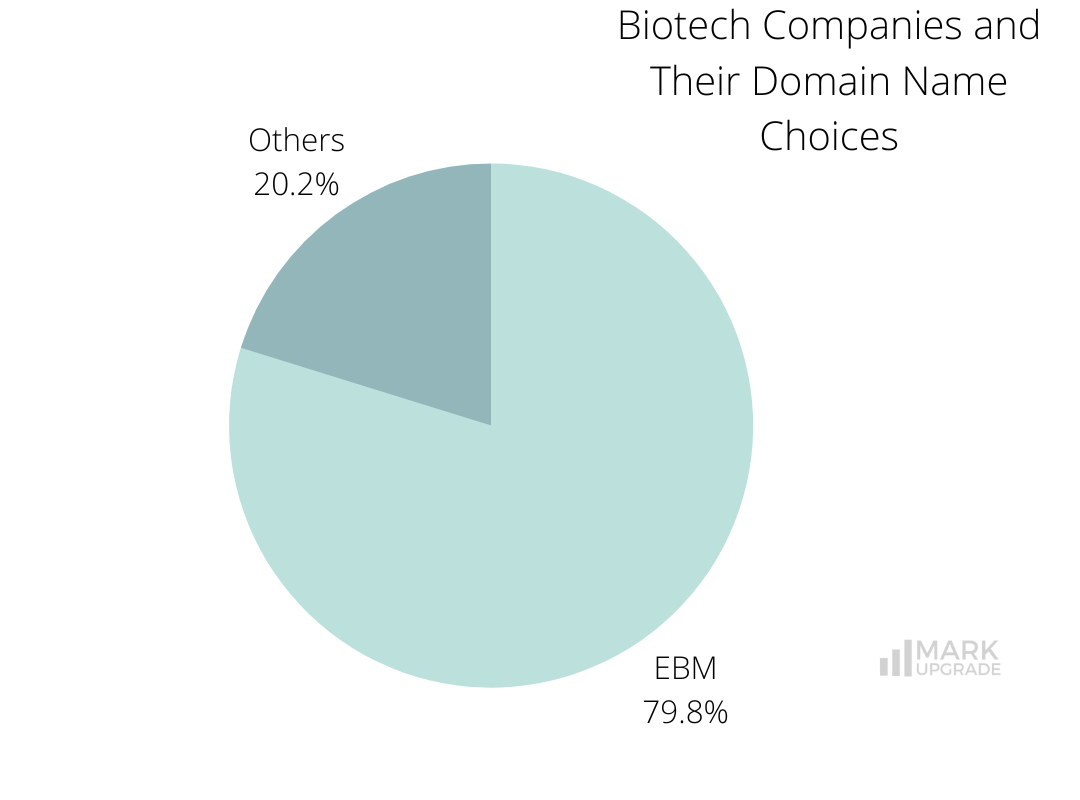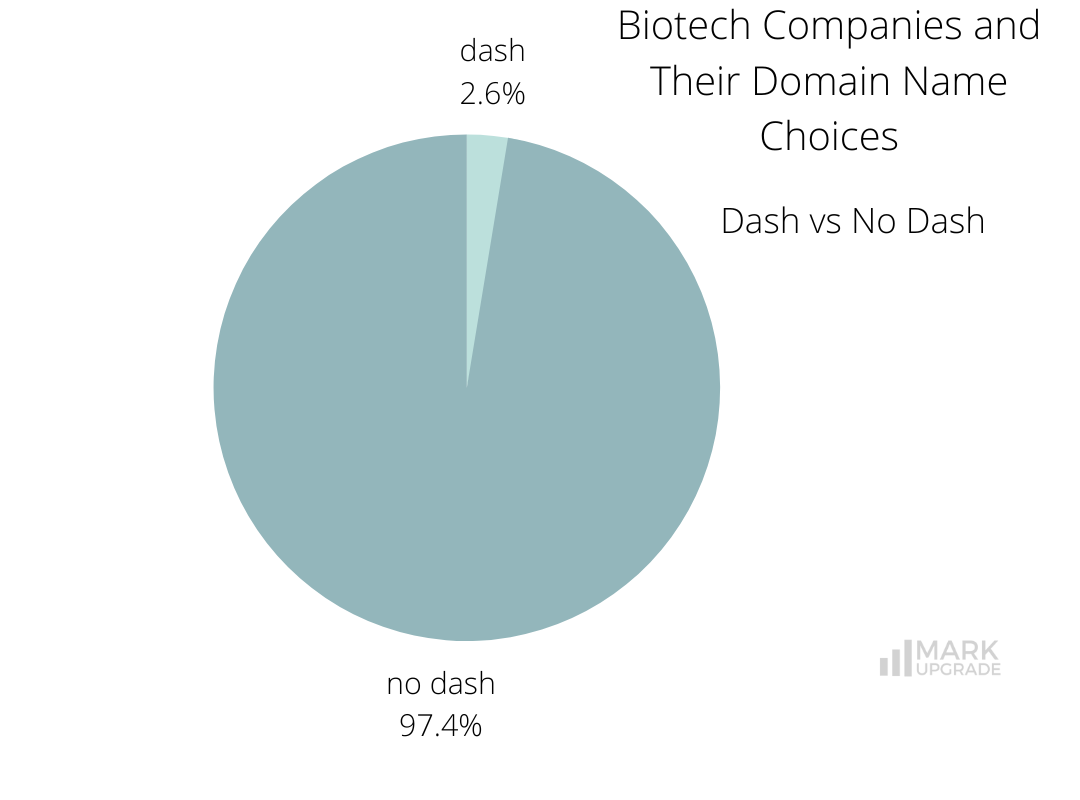Overview
Biotech, or biotechnology, is a technology field that utilises biomolecular and cellular processes to create healthcare, food, and fuel products. Recent advancements in gene editing, synthetic biology, and personalised medicine have propelled biotech to new heights, leading to the development of new disease treatments, sustainable food production, and organism engineering. As a result, biotech has garnered significant investment and attention from the scientific community, VCs, and the general public and has the potential to revolutionise various industries.
Biotechnology is a fascinating and exciting field, with incredible potential for improving human health and well-being.
Craig Venter, American biotechnologist and entrepreneur
The global biotechnology market size is projected to reach US$ 3.44 trillion by 2030, growing at a CAGR of 17.83% from its value of US$ 852.88 billion in 2020. This growth is attributed to favourable government policies, new and advanced products launch, robust investment in the biotech sector, and rising demand.
The evolution of biotech is reflected in trends such as personalised medicine, drug research, artificial intelligence, big data, and synthetic biology. Robust funding through investment alliances in start-up biotech companies contributes to the market’s growth.
Branding, naming, and domain names are essential considerations for biotechnology companies as they establish their presence in the market. A strong brand identity can help these companies stand out in a crowded industry and communicate their unique value proposition to potential customers and investors.
Trends, Branding and Domain names
When it comes to branding and naming, biotech companies similar to any business, need to consider various factors, including their target audience, the competitive landscape, and their overall company values and mission. What makes things more complicated for the industry is that they may also need to navigate complex regulatory requirements and communicate technical information in a way that is accessible to a broader audience.
In the 19th century, when the modern pharmaceutical industry was in its infancy, it was common for companies to be named after their founders, such as Pfizer, Bayer, and Eli Lilly. As biotechnology began to emerge in the 1970s, companies started to incorporate the terms “Bio” or “Gen” in their names. For example, Biogen, based in Cambridge, combined both terms in their name.
Currently, biotech companies select names intended to evoke a specific therapeutic focus or create an emotional response, such as passion or innovation. These names are carefully chosen to convey aspirational cues that resonate with consumers and investors.
Let us take a closer look at several biotech companies on our list and examine how they approached the process of naming and selecting domain names as part of their branding strategies.
Namepicks
All biotech companies presented in the list below have chosen to invest in exact brand-match domain names. This strategy ensures that their brand is well-protected online and avoids confusion among customers and business partners, as well as traffic and email leaks. By investing in an exact brand match domain name, a biotech company can signal to potential customers, investors, and other stakeholders that it is professional, established, and trustworthy. This is particularly important in the biotech industry, where companies often work on cutting-edge technologies and products that require significant investment and regulatory approval.
Amgen
Amgen is a biopharmaceutical company developing and commercialising innovative therapies for severe illnesses like cancer and cardiovascular disease. It was founded in 1980 under Applied Molecular Genetics by a group of scientists who had the vision to use human genetics to develop innovative treatments for serious illnesses. Today, Amgen has a global presence, with operations in more than 100 countries and approximately 24,000 employees worldwide. The company is committed to positively impacting the world by improving patient outcomes, advancing scientific knowledge, and supporting communities through philanthropy and sustainability initiatives.
Interesting fact
In 1983, Applied Molecular Genetics changed its name to Amgen. The founders decided to create a new name that would be more memorable and better reflect the business’s focus on using genetic insights to develop amino acid-based therapeutics. The name “Amgen” is a combination of “amino” and “gen,” which are both related to the company’s focus on developing therapies based on genetic insights. Amino acids are the building blocks of proteins, essential for many biological processes, while “gen” is short for “genetics,” which refers to the study of genes and genetic information.
As a global brand, Amgen has chosen a matching global domain – Amgen.com.

BioNTech
BioNTech is a German biotechnology company that focuses on developing personalised cancer immunotherapies and mRNA-based vaccines for infectious diseases, including COVID-19. The company was founded in 2008 by two scientists, Dr Ugur Sahin and Dr Özlem Türeci, and has since grown to become a leading player in the biotechnology industry. BioNTech’s mRNA technology platform has shown promising results in various preclinical and clinical studies, and the company has secured several partnerships and collaborations with other biopharmaceutical companies and research institutions. In 2020, BioNTech partnered with Pfizer to develop a COVID-19 vaccine, the first mRNA vaccine to receive emergency use authorisation from the FDA.
Interesting fact
The name “BioNTech” was created by the company’s founders, Dr Ugur Sahin and Dr Özlem Türeci. The “Bio” in the name represents the company’s focus on biotechnology and personalised medicine, while the “NTech” stands for “New Technologies.” The founders chose the name to reflect their vision of using cutting-edge technologies to bring new hope and solutions to patients needing effective therapies.
BioNTec has invested in the exact brand match BioNTech.com thus making the most out of their marketing across channels and avoiding security risks.

Biogen
Biogen is a biotechnology company specialising in developing therapies for neurological and neurodegenerative diseases. Founded in 1978, the company is headquartered in Cambridge, Massachusetts, and operates in several countries worldwide. Biogen’s best-known products include TECFIDERA, a treatment for multiple sclerosis, and SPINRAZA, a treatment for spinal muscular atrophy. The company is also involved in researching and developing therapies for Alzheimer’s disease, Parkinson’s disease, and other neurological conditions.
Interesting fact
Initially, the company was called Biotechnology Geneva. In 2003, it merged with IDEC Pharmaceuticals, a San Diego-based company that was formed in 1985 by a group of physicians, immunologists, and bio entrepreneurs. The newly merged company was named Biogen Idec and became the third-largest biotechnology company globally. Following shifts in research core areas, the company has since shortened its name, reverting to simply Biogen.
Biogen operates on the exact brand match domain name Biogen.com. EBMs can be a valuable asset for companies looking to establish a strong and recognisable brand identity online.

Seagen
Seattle Genetics, or Seagen, is a biotechnology company based in Washington State, United States. The company specialises in developing and commercialising innovative therapies for cancer patients, focusing on antibody-drug conjugates (ADCs). ADCs are a new class of targeted cancer treatments that deliver chemotherapy directly to cancer cells while minimising damage to healthy cells. Seagen’s flagship product is ADCETRIS, a treatment for several types of lymphoma that has been approved in over 70 countries worldwide. The company is also involved in ongoing research and development of other ADC therapies for various types of cancer.
Interesting fact
Seagen was originally named Seattle Genetics when it was founded in 1998, as a nod to its location in Seattle, Washington, and its focus on genetic research. In 2020, the company rebranded and changed its name to Seagen. The new name combines “sea,” representing the company’s Pacific Northwest roots, and “gen,” for its dedication to genetics and genomics.
The name swap “reflects who we are today, as we expand our presence beyond the Pacific Northwest and outside of the United States to support the commercialisation of Tukysa globally.
CEO Clay Siegall
In addition to the name change, Seagen has introduced a new logo and migrated its corporate website to the exact brand match domain name Seagen.com. This move strengthens the company’s branding efforts and makes it more accessible for customers and stakeholders to locate their website online.

Lonza
Lonza, a Swiss-based global provider of products and services to the pharmaceutical, biotech, and speciality ingredients markets, was founded in 1897 and had its headquarters in Basel, Switzerland. The company operates in over 35 countries worldwide and offers a broad range of services, including contract development and manufacturing of biologics, small molecules, and cell and gene therapies. It also produces chemicals, microbiological control solutions, and nutritional ingredients.
Lonza is dedicated to sustainability and has set ambitious targets to reduce its environmental impact and increase social responsibility. It aims to become a leader in sustainable solutions and to help its customers achieve their sustainability goals.
Interesting fact
The name “Lonza” was chosen for the company as a tribute to its origin in the Valais region of Switzerland, where the Lonza River runs. The area is known for its stunning natural environment, and the river is famed for its crystal-clear water. It is where Valais mineral water comes from, celebrated for its exceptional purity and taste.
By selecting the name “Lonza,” the company aims to underscore its commitment to quality and purity, which are essential values in the pharmaceutical and biotech sectors. The name also reflects the company’s roots in Switzerland and its pride in the natural beauty and resources of the country.
In 2017 Lonza changed its visual identity, messaging, and overall branding strategy. The rebranding aimed to present a more unified and cohesive image to the market and highlight the company’s unique strengths and value proposition as a pharma and biotech service provider.
Our new branding represents a clear statement of our position as a leading pharma and biotech service provider with a unique offering of integrated solutions. This is a journey we started several years ago, and we are now presenting ourselves with a unified image and brand that reflects our ambition to be a trusted partner to our customers and a recognised employer of choice.
Richard Ridinger, the former CEO of Lonza, In a press release discussing the company’s 2017 rebranding efforts
Lonza acquired the domain name lonza.com in the early 1990s when the internet was still in its early stages of development. The company recognised the importance of securing an exact brand match domain name early on, as it would help establish its credibility and make it easier for customers and stakeholders to find its website online. The domain name Lonza.com has been used consistently since then, and it has become a recognisable and trusted name in the pharmaceutical and biotech industries.

Highlights
469 companies have opted for the widely popular .com extension for their domain name.

A smaller number of companies, 17 in total, have chosen to use the .co.uk extension, while 8 companies have chosen to use the .bio extension. The “.bio” domain name extension, managed by Afilias, a leading global domain name registry, was introduced in 2014. While it was designed primarily for the biotech industry, it has found use in a range of contexts, such as e-commerce websites, informational sites, and personal blogs.
Out of the 500 companies surveyed, a majority of 399 have chosen to use exact brand match (EBM) domain names for their online presence. This is likely due to the enhanced brand recognition and credibility that an EBM domain name can provide.

A minority of 6 companies have chosen other domain name extensions, and 13 companies have used a dash in their domain name. Using a dash in a domain name can make it harder to remember and type accurately, potentially resulting in decreased traffic.

While we make every effort to ensure the data on our site is accurate, complete, and up-to-date, we cannot guarantee its reliability. Our data is provided for informational purposes only and should not be relied upon as legal, financial, or other advice. We strongly recommend that you independently verify any information before relying on it.
Other resources
- 20 Biohacking Companies Worth Watching in 2021/2022 and Their Domains
- Biohacking Companies and Their Domain Name Choices
- The Importance of Investing in a Strong Domain Name for Your Business
- 9 Things to Know Before you Invest in that Premium Domain
When it comes to premium domain names, it’s important to weigh the potential loss in terms of brand recognition and revenue against the cost of the investment. In the long run, a premium domain name can be a valuable asset for your business. Contact us to learn more about our premium domain options and how they can help your business succeed.
Biotech biotechnology branding business domain domain name domain names domains naming

Previous Next